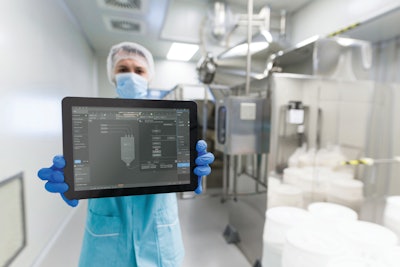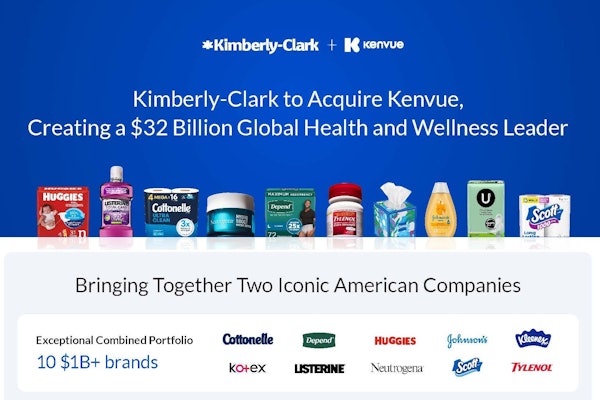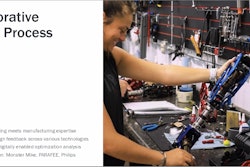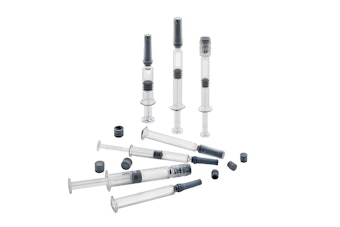The life sciences industry is at a pivotal point in its history. It faces new challenges in getting treatments on the market while at the same time it has opportunities to use burgeoning technologies like artificial intelligence (AI) and machine learning to tackle challenges. But applying the technologies to solve the problems is not always easy. Honeywell and Bigfinite (rhymes with infinite) have joined forces to help their customers figure it out.
“One doesn’t have to look too far in the headlines to see something about a potential breach of data integrity or how long it’s taking new medicines to make it to the market,” says Cynthia Pussinen, vice president and general manager of Honeywell’s Life Sciences and Specialty Chemicals business. “We can help.”
The two companies will combine Honeywell’s expertise in process automation and controls technology with Bigfinite’s data analytics, AI and machine learning platform, designed specifically for the biotechnology and pharmaceutical industries.
“This industry could be incredibly faster and much more efficient. Now the technology’s ready and available to really change that,” says Pep Gubau, CEO and co-founder of Bigfinite, which was launched five years ago to enable the life sciences industry to do just that. “We are there to help them to adapt in a smooth way and be able to adapt to this super-fast change of this industry if they change now.”
The joint offering will use Bigfinite’s platform to power Honeywell’s products to enhance manufacturing process operations for life sciences companies. It will consolidate compliance-related manufacturing data contained in disparate systems across the enterprise into a single, visual interface for drug manufacturers. This will include data from laboratory information management, batch management, control, quality management, manufacturing execution, and inventory systems.
The goal is to solve a number of operational challenges while ensuring data integrity, audit-readiness, and compliance along the way, Pussinen says. “The industry is really doing fantastic science—some of it in new and exciting areas such as gene therapy. So, in the process, we’re managing really highly complex manufacturing-related systems, vast amounts of data from multiple disparate systems,” she says. “Our offerings will allow these data to be aggregated and displayed on a single GxP-compliant platform using AI and predictive analytics.”
This effort is focused on the increasing complexity of the industry’s processes and the need to really understand those processes, Gubau adds. “We’re moving from very process-oriented results to really applying science and data and extracting the needed knowledge to understand processes and go faster to market,” he says.
Honeywell Ventures invested a few months ago in Bigfinite through its Series B financing, and Honeywell execs have high hopes for what a partnership can bring. “Bigfinite is just really the epitome of Silicon Valley and entrepreneurial energy and speed,” Pussinen says, pointing also to the alignment possibilities of the two companies. “They’ve done some really amazing, cutting-edge work that Honeywell felt was highly complementary to and synergistic with our offerings in the process automation space, including Experion Batch. So this is a really strategic decision on Honeywell’s part that reinforces our increased focus on developing systems, processes and services to help make the world a healthier place.”
What Bigfinite gets out of the partnership is a more effective way to scale its technology. “We are a fast moving, innovative, disruptive technology. But we are addressing a very large, complex, regulated industry. And you need the capacity to really service this industry—to roll out, to ensure that they can scale up at the needed speed and needed scale and volume,” Gubau says. “We were looking for a partner who’s well known and well established in the process industry and the automation. There’s no better name than Honeywell, and their reputation preceded them in this capacity.”
Both companies have existing standalone products, but the joint development teams have been working successfully to link those products, Pussinen notes. Together, Bigfinite’s cloud-based software-as-a-service (SaaS) platform and Honeywell’s advanced process automation and visualization provide real-time visibility and predictive insights through advanced analytics, AI and Internet of Things (IoT) technologies with end-to-end data integrity. Through enhanced transparency, regulatory visibility and digital transformation of manual processes, the new solutions will allow life sciences companies to minimize regulatory risk, increase operational efficiencies and deliver products to customers faster while reducing rejections and waste of products.
Though the partnership has not yet implemented the joint offering with a client yet, they have been in talks with potential clients, Pussinen says. “We are actively meeting with potential clients, and I believe we will select a project very soon,” she says.
Pussinen, who has spent more than 25 years working in life sciences—20 of those with Pfizer—calls the collaboration groundbreaking. “When I look back to my pharma manufacturing days, which are not altogether too distant in the review mirror [she joined Honeywell just four months ago], I would’ve jumped to have what we’re doing because it would’ve allowed me to deliver new medical therapies to the patients faster while increasing compliance and visibility of my manufacturing process from end to end, with security of data and reducing rejection and waste,” she says.
Gubau has been working in life sciences for about 30 years. “We are focused on this industry because of our background knowledge of 30 years developing technology for this industry,” he says. But that certainly doesn’t rule out Honeywell and Bigfinite bringing their technologies jointly to other industries. “The technology is agnostic, so these very same capabilities are useful for any industry.”
The possibilities are open, Pussinen adds. “I don’t think we should rule anything out because this could be quite valuable to other industries who use manufacturing, which, as you know, Honeywell operates in a number of these spaces,” she says. “So I think this could be a highly desirable offering to many other industries outside of life sciences and specialty chemicals.”
For now, at least, the two companies are focusing their joint work on life sciences. “This is really personal for me because we’re all patients at the end of the day,” Pussinen says. “What Honeywell and Bigfinite can do together is really help the industry and to deliver medicines to the patients faster. That, for me, is really something we must do.”






















